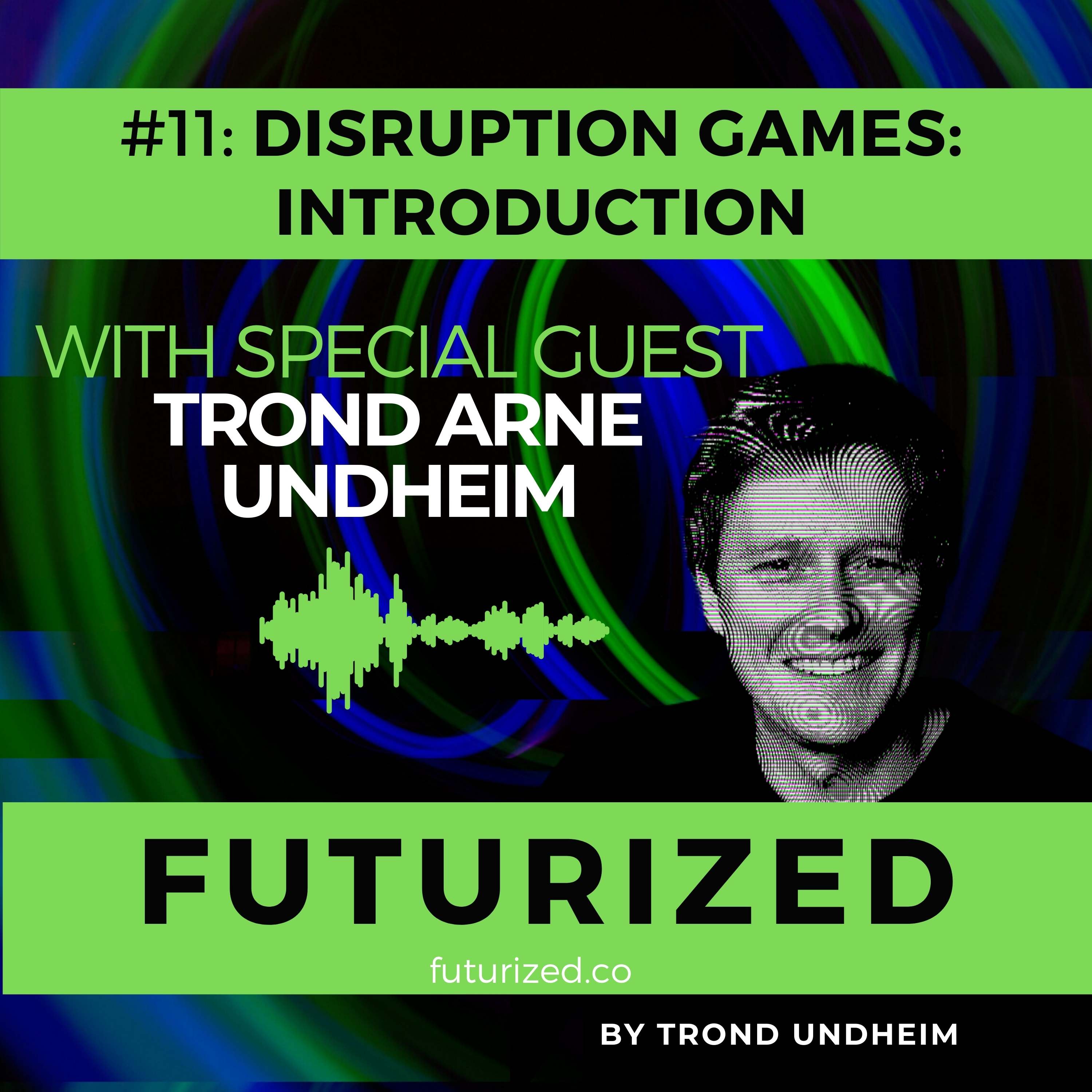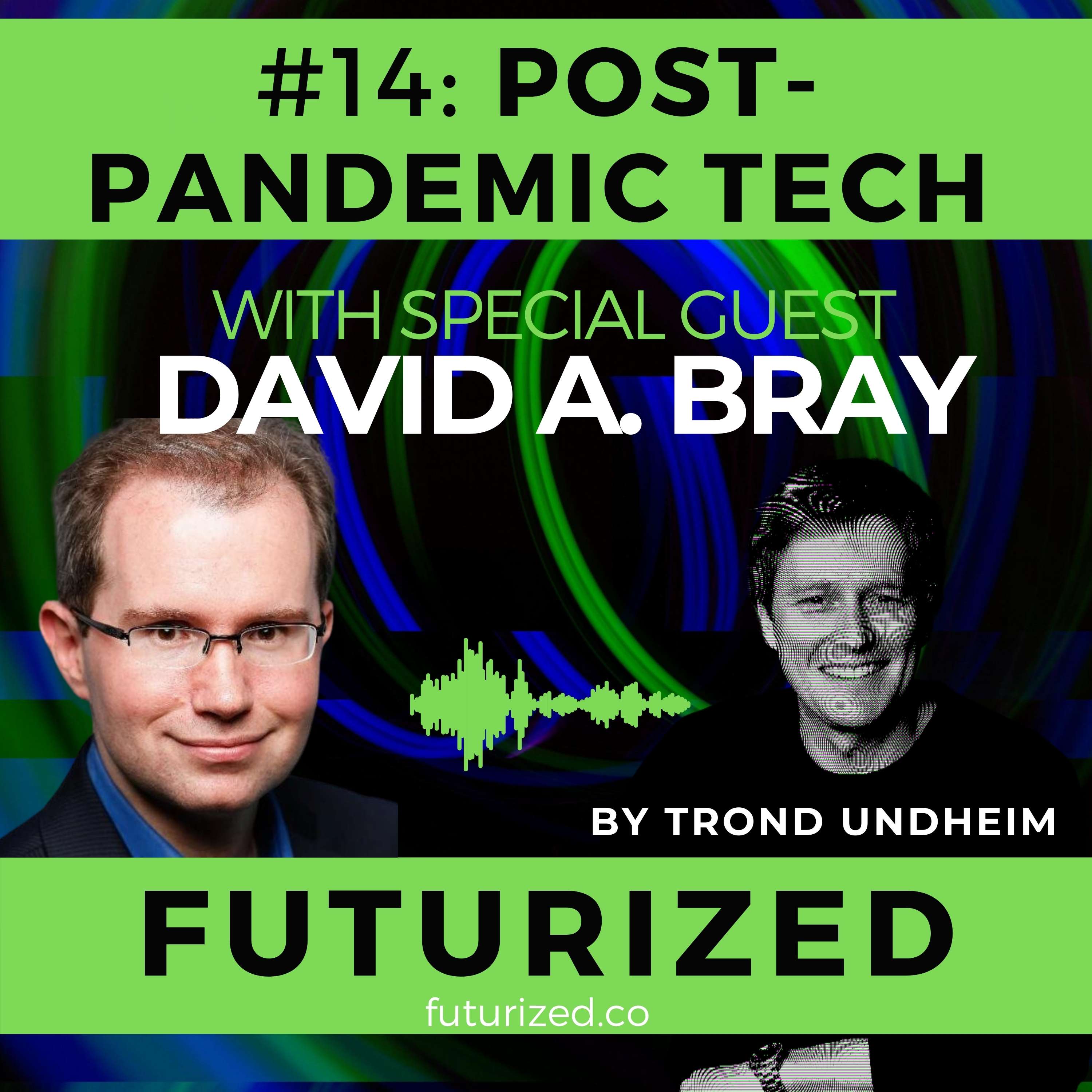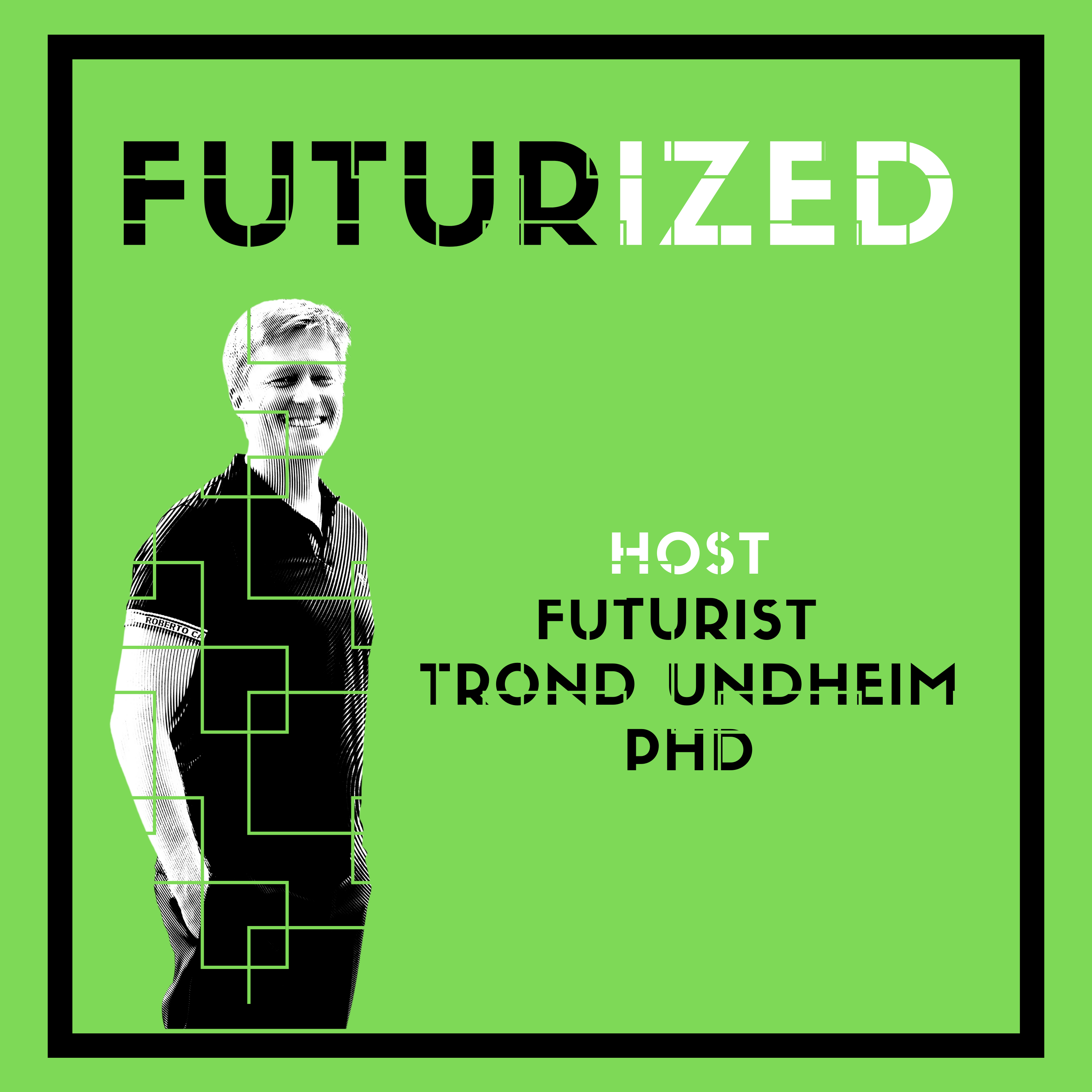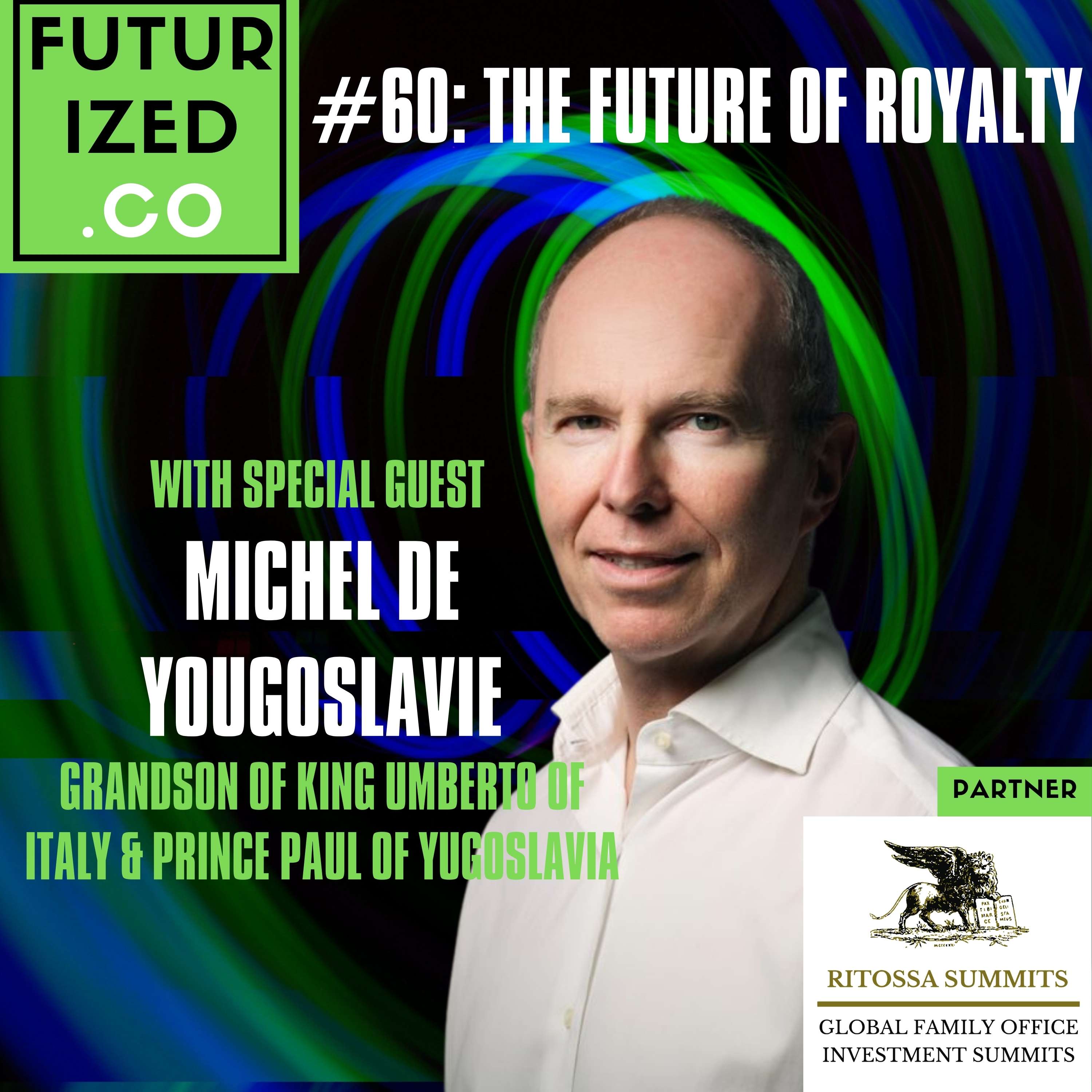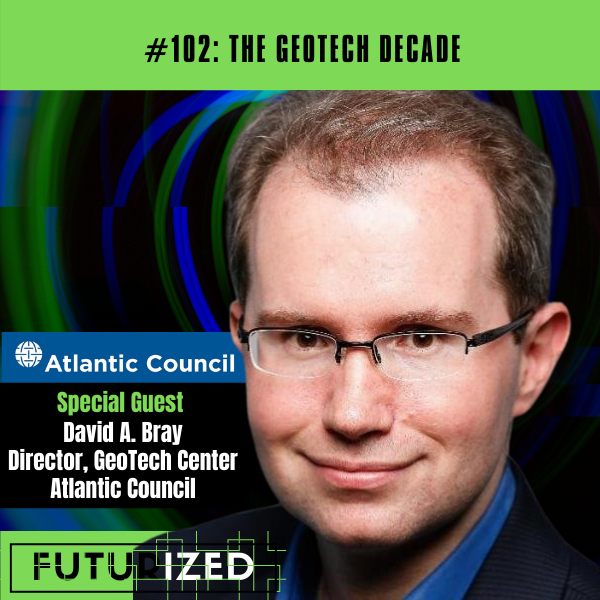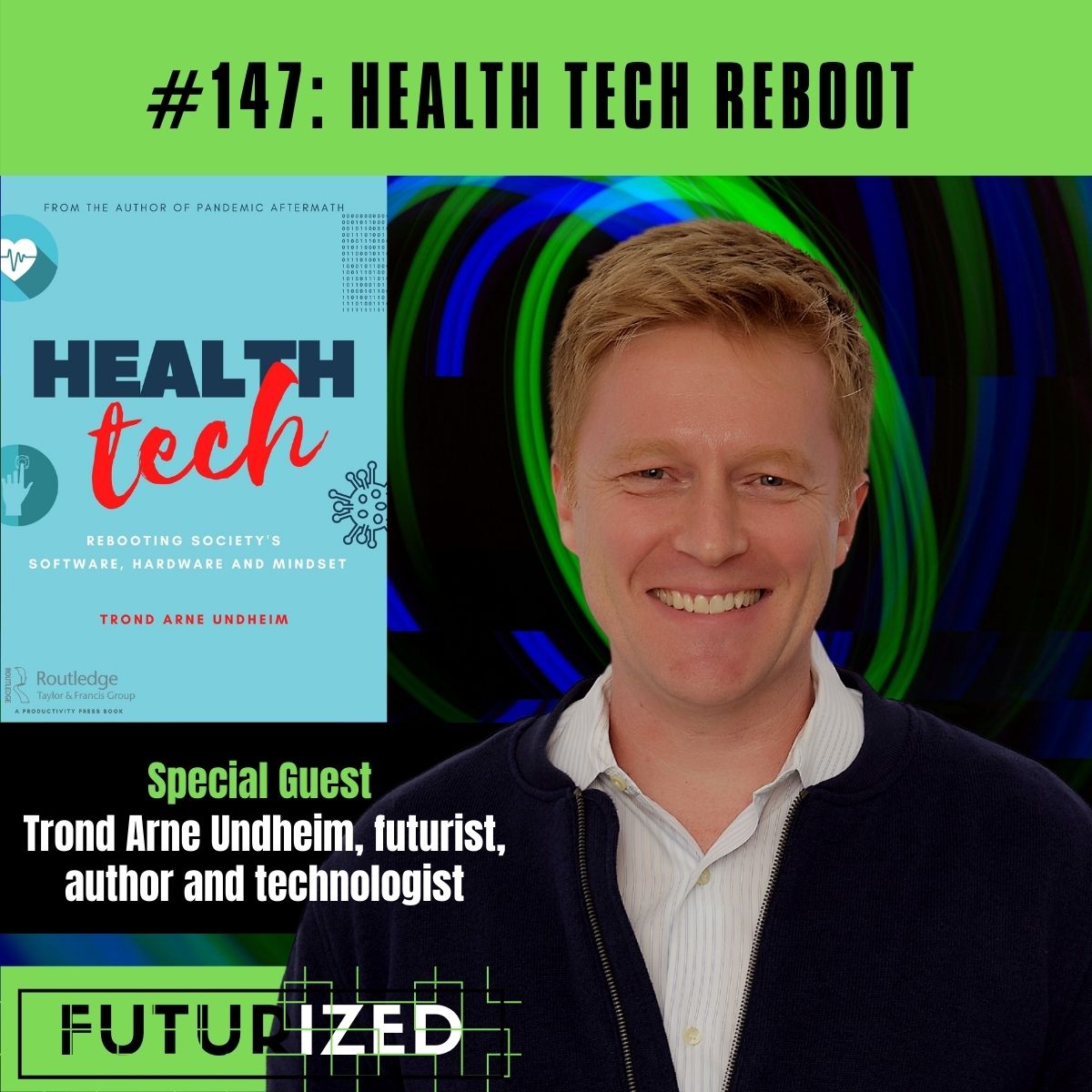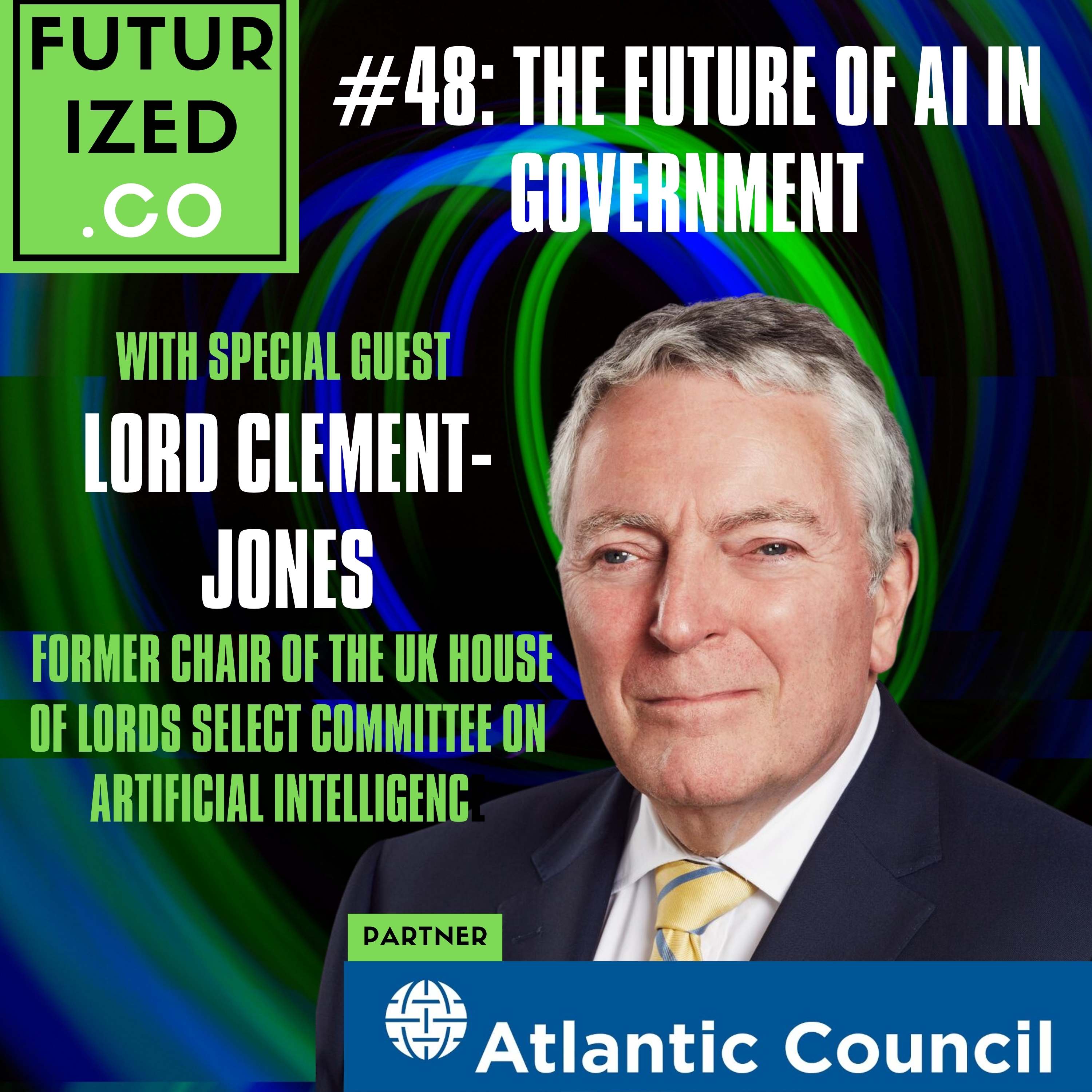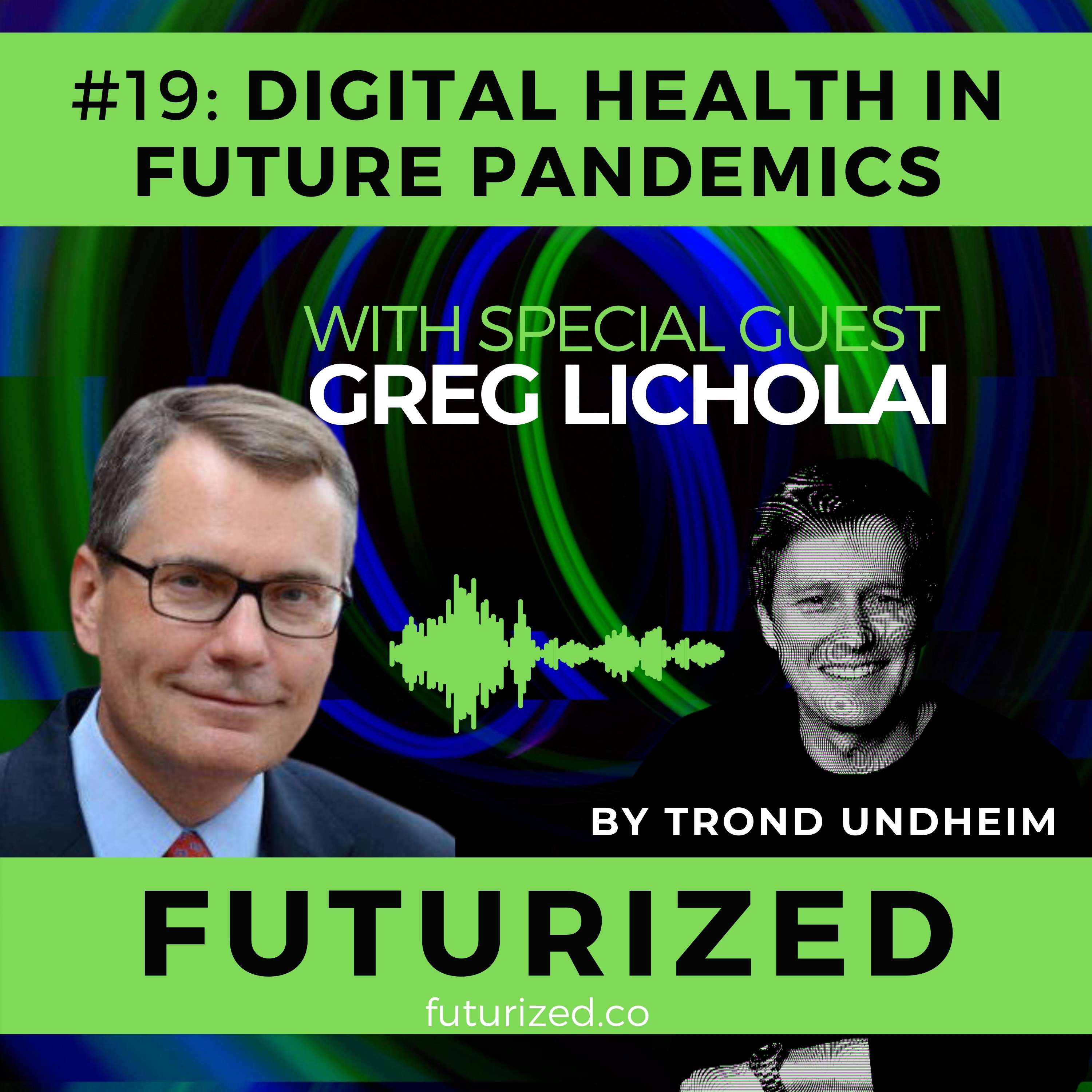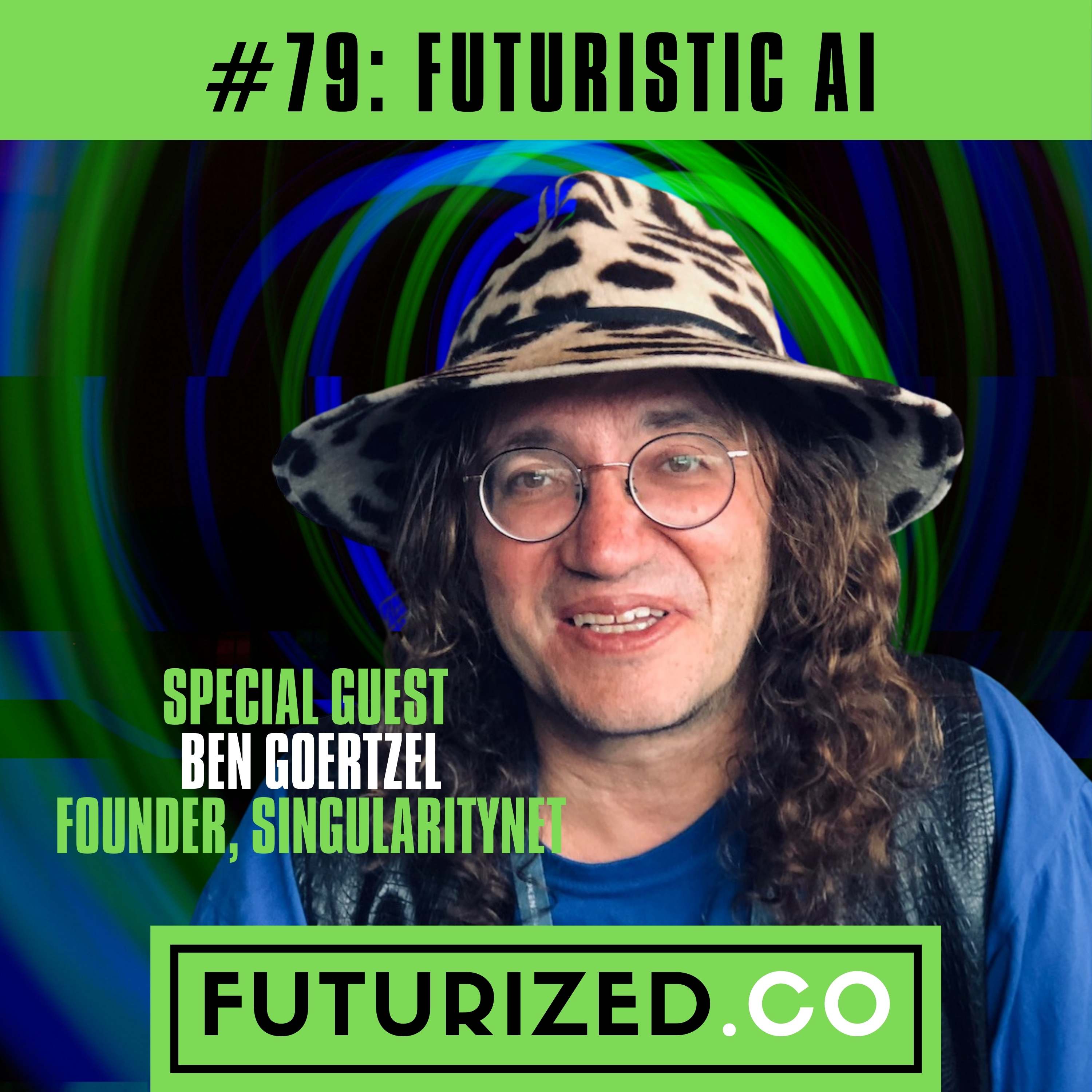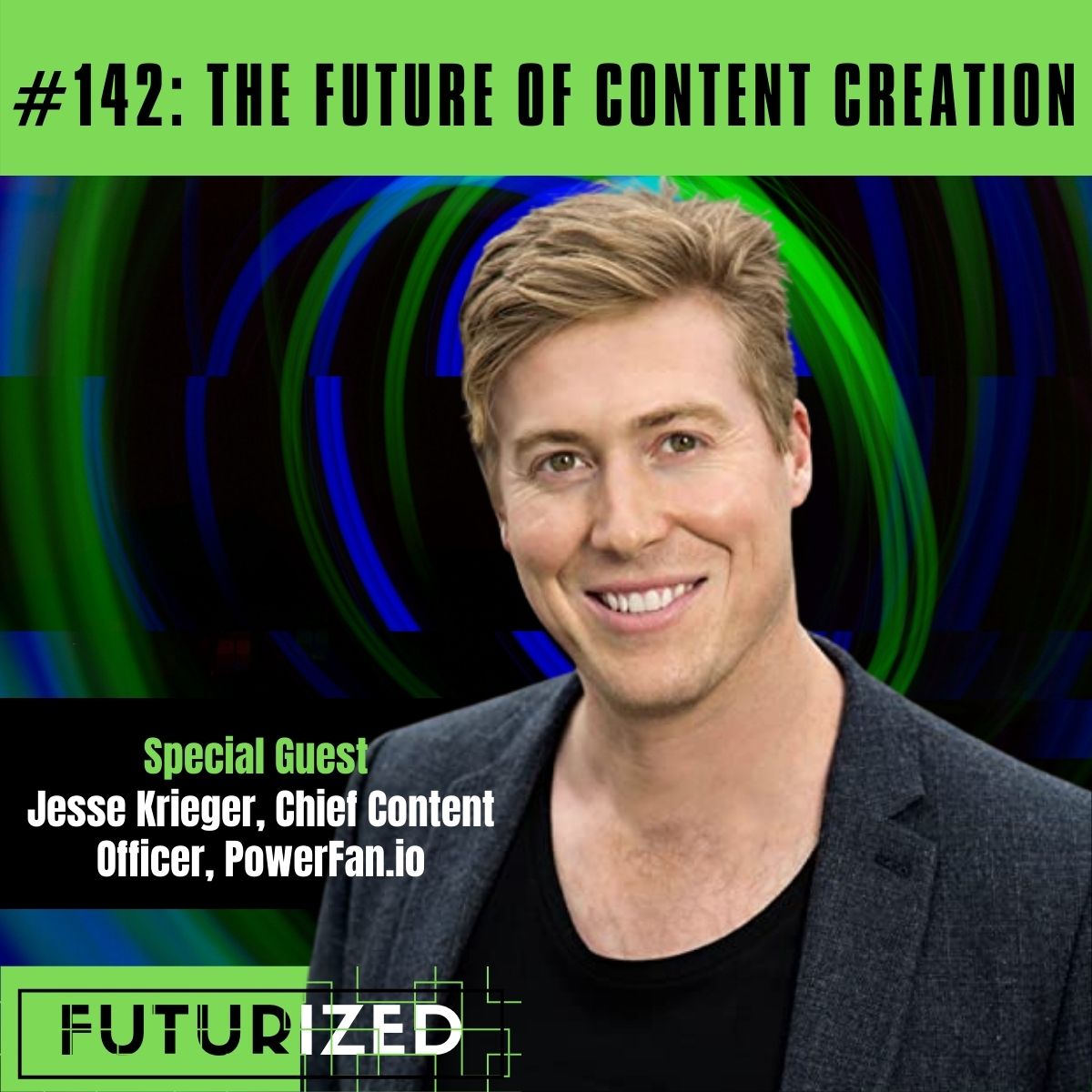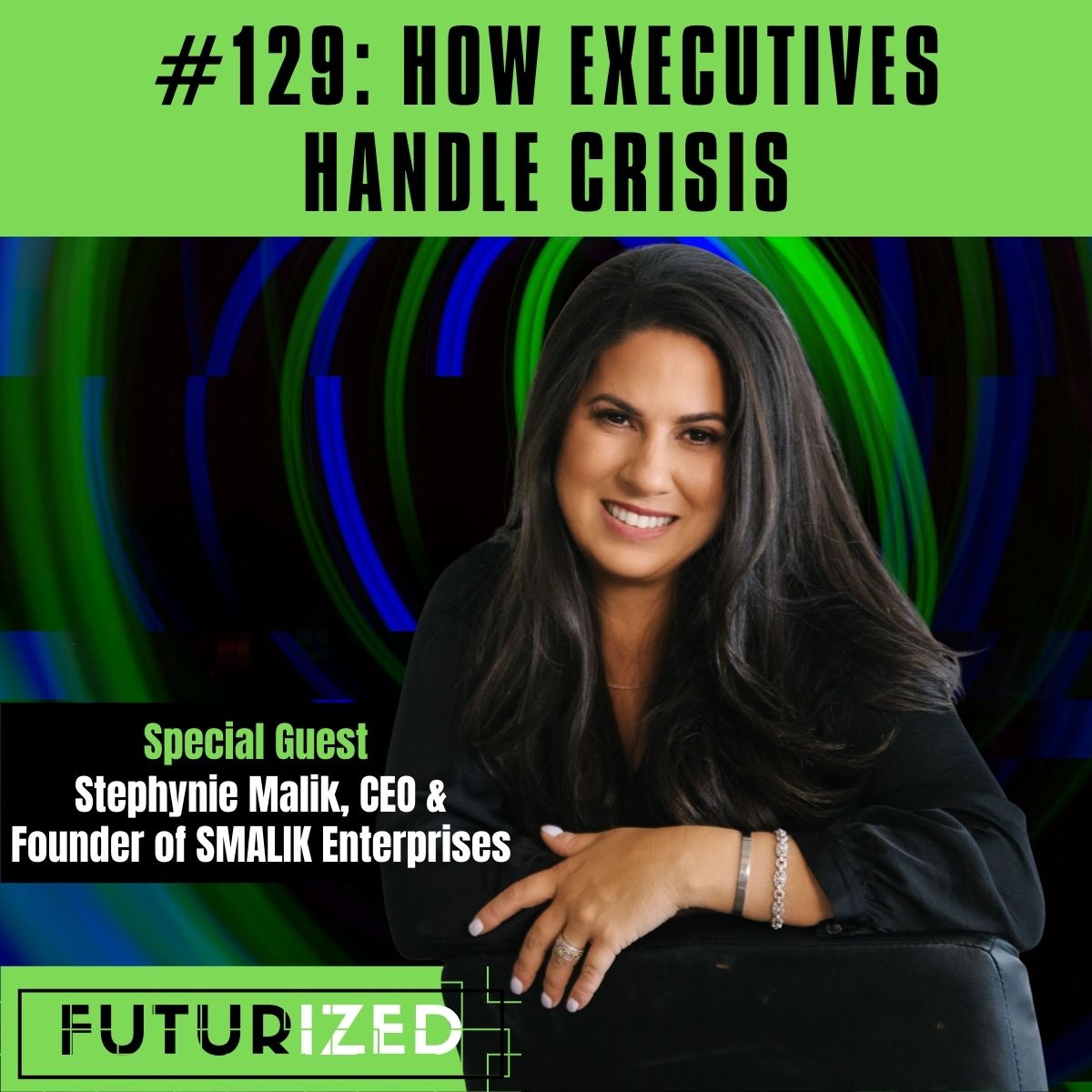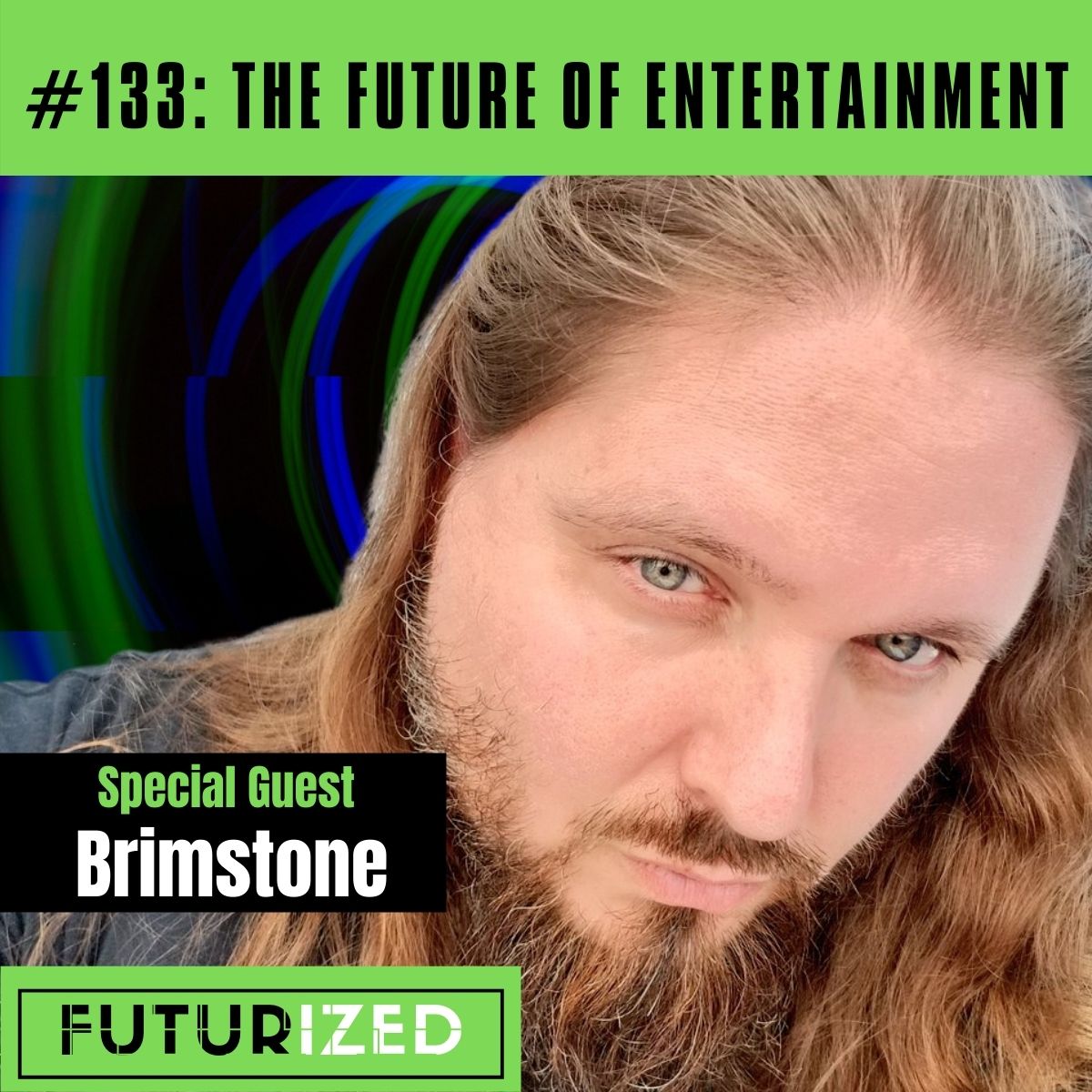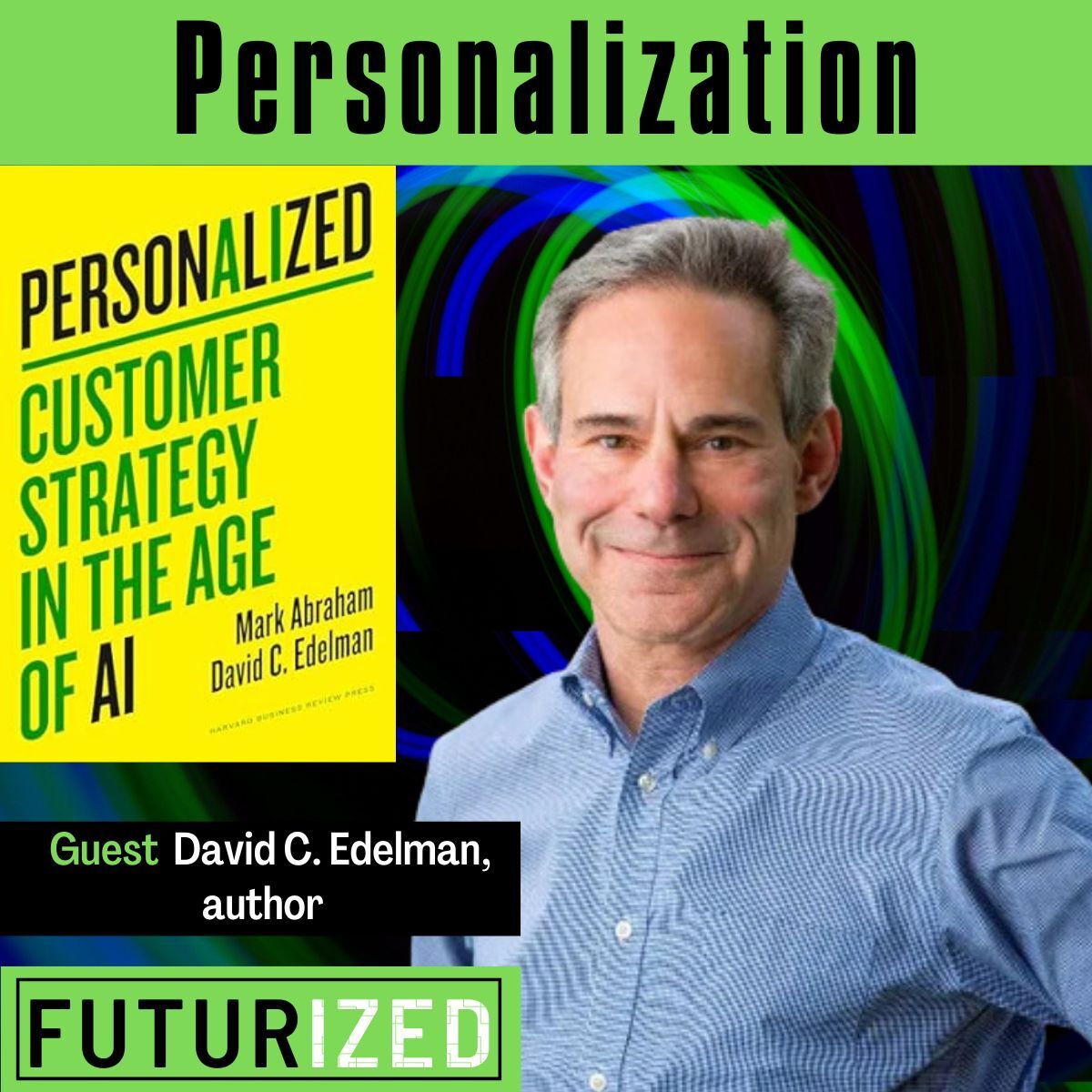The Future of Medicine is Invisible
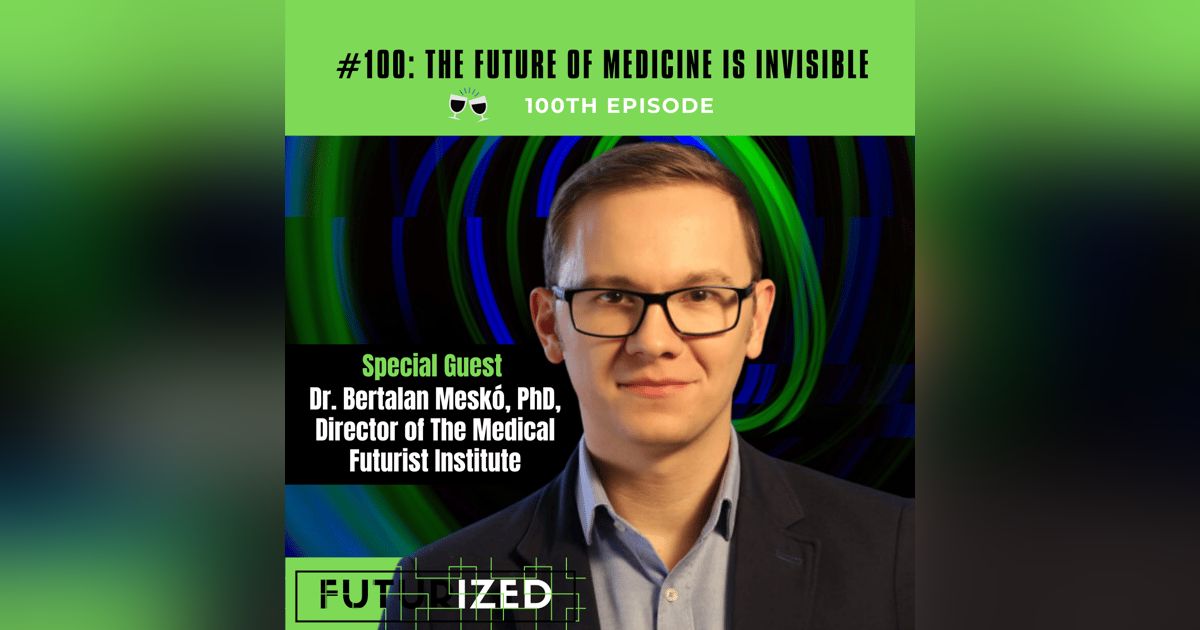
Bertalan Meskó, Director of The Medical Futurist Institute, interviewed by Trond Arne Undheim, futurist and author.
In this conversation, we talk about the emergence of rapid healthcare transformation. Current best practices. We cover the many disruptive...
Bertalan Meskó, Director of The Medical Futurist Institute, interviewed by Trond Arne Undheim, futurist and author.
In this conversation, we talk about the emergence of rapid healthcare transformation. Current best practices. We cover the many disruptive forces affecting medicine. How to track trends? What will medicine look like in the next decade? We discuss the advance of digital health and beyond. I find out how Bertalan tracks signals from sci-tech, startups, stakeholder dialogue, and visionary thinking and how he experiments on himself, testing out each medical innovation before recommending it or ever writing or speaking about it.
After listening to the episode, find out more about The Medical Futurist and check out Bertalan Meskó's social media profile.
- The Medical Futurist: https://medicalfuturist.com/
- Bertalan Meskó (@berci): https://www.linkedin.com/in/bertalanmesko/
Trond's takeaway: "Bertalan's notion that the future of medicine is invisible, seamless, and preventive is a great vision to have. In my own forthcoming book, Health Tech: Rebooting Society's Software, Hardware and Mindset, which is forthcoming on Routledge this fall, I make the point that the grand challenges of our time demand that we coordinate better than ever before. Shaping the future requires being aware of the opportunities and able to capitalize on them. That's where Bertalan is brilliant, making us all aware of the opportunities."
Thanks for listening. If you liked the show, subscribe at Futurized.org or in your preferred podcast player, watch Futurized Podcast on YouTube, and rate us with five stars.
If you like this topic, you may enjoy other episodes of Futurized, such as episode 88, The Future of Virtual Care, episode 82, The Future of Digital Health AI, or episode 55, AI for Medicine.
Futurized conversations—preparing YOU to deal with disruption.
The Future of Medicine is invisible_mixdown
Trond Undheim, Host: [00:00:00] Futurized goes beneath the trends to track the underlying forces of disruption in tech policy, business models, social dynamics, and the environment.
[00:00:10] I'm your host Trond Arne Undheim, futurist and author in episode 100 of the podcast, the topic is the future of medicine is invisible. Our guest is Bertalan Mesko director of the medical future Institute in this conversation.
[00:00:27] We talk about the emergence of rapid healthcare transformation, current best practices. And we cover the many disruptive forces affecting medicine, how to track trends, what will medicine look like in the next decade? We discussed the advance of digital health and beyond, and I find out how much along tracks signals from Sci-Tech startups, stakeholder, dialogue, and visionary thinking and how he exceeded on himself, testing out each medical innovation.
[00:00:55] Before recommending it or even writing or speaking about it,
[00:01:00] Bertalan...How are you today?
[00:01:01] Bertalan Meskó: [00:01:01] Thank you. I'm doing really fine. How are you?
[00:01:06] Trond Undheim, Host: [00:01:06] I'm doing well as as well. I thought it is a super nice time to, to be talking to you because medical futurism, there's no more important time for that special law night.
[00:01:18] I wanted maybe to hear a little bit from you. How you became to be a medical futurist. I've looked you up a little bit. You are a geek physician. It says on the internet. That's a funny, that's a funny term. You want a bunch of prizes early on. So I'm guessing you quite quickly were discovered as a bit of a talent in various fields.
[00:01:38] I, I saw that you're also a member of Mensa. So that's interesting. And then you're a member of the Kairos society, which I found on the internet called a stealthy club for tech moguls. So this is about what I know about you apart from the fact that you're a professor at the Semmelweis medical school in Budapest, in Hungary, where I believe you were based.
[00:01:58]And of course your career as a futurist interspersed in some way with a, a medical degree and a PhD in genomics. And then you're obviously a prolific writer and a author and a podcaster, and you're a little bit all over the specialty of media around medicine.
[00:02:16] Did I get any of
[00:02:17] that? Correct?
[00:02:17]Bertalan Meskó: [00:02:17] You are too kind to me. That's the point here? The general goal I had at the age of six was. To dedicate my life to science and and life sciences seemed to be the most exciting to me. That's why I went to medical school. That's why I did my PhD in clinical genomics, but as soon as I finished this, so I reached the childhood dream that I had so many years ago, I felt that something was missing and that's where my geek part comes into the picture.
[00:02:44] What was missing was my love for technologies. And as there was no profession where I could combine my researcher background, my medical background and my geek self, I had to start designing a new profession for that. And that's medical futurism, which is somewhere between life sciences and social sciences, especially futuristic studies.
[00:03:07]What I do now, we have two arms at the medical futurist. I lead the team of 12 people and we try to help patients, physicians and policymakers were divided about almost a million followers, better understand what has been going on in health care. In 21st century, we provide the context around announcements and new technologies.
[00:03:26] We try to avoid the hype. And the work again against rejection to help people understand what's going on, what we can do, how we can reach a desired futuristic scenario for healthcare vert, vide, and at the medical victories Institute, we do the same, but through peer reviewed research, we published studies about how AI is being used and will be used in medicine and healthcare.
[00:03:50] And why digital health is indeed a cultural transformation. Not a technological ones, but that's how I have been becoming a medical futurist. And that's how I built this medical future is to organization around this idea.
[00:04:04] But too long, there's so many things to pick up here, but I'm going to start with the one that you said you want to avoid hype.
[00:04:09] That's a contradictory statement when you call yourself a futurist, but I know where it's coming from. So I wanted to explain what you mean.
[00:04:17] As a geek, it's easy for me to jump into hype because I'm excited about using advanced technologies, especially my own health, getting my own health management.
[00:04:26] When I first used the, an author sound device with with guidance from artificial intelligence, it blew my mind the way it was like meeting science fiction or one of the very first time I could use a mixed reality application to dissect the human body without physical limitations or the formaldehyde smell.
[00:04:44] It seemed like living in science fiction, but it's a very much important part of my job to avoid hype because hype is dangerous when it comes to medicine and healthcare. Just to be practical year around type of course, mostly I'm talking about artificial intelligence. If we, if I. Help the idea move forward that if a company uses AI, they must be amazing.
[00:05:08] Then I created a danger for patients and physicians alike at the same time. If I'm very slow at adopting new technologies or understanding them, then I might be the blocking. I might be the one blocking the progress ahead. Therefore, even though futurists and to talk quite optimistically about the future.
[00:05:30] And I am indeed an optimistic person. I have to be very cautious about about using hype to make a point. Yeah.
[00:05:41] Trond Undheim, Host: [00:05:41] Like what you're saying. And I think, especially in the field, the joint fields, of medicine and. Hypable technology. So especially things like AI, where there is so much to talk about the very easy to get carried away.
[00:05:56] But also generally I was just referring to the field of being a futurist, which, for me certainly is a new label that I just started using. And it's something which, you know, as a former kind of academic in a part of my life, it is a very controversial term. So because, even when you start saying that you're actually.
[00:06:16] Engaging with talking about something that hasn't happened. Of course you are outside of the field of traditional academia. So there would be people who counter your statement to say everything that one does in that domain is hype. So it's just interesting to hear you speak about it because I think it is such a fundamental thing to not let the future just.
[00:06:38] Happen, but have an opinion about what seems to be emerging and I praise you for that. So with that, maybe we should go into some of the specifics. One of the things you say that I've heard in various other places you say the future of medicine is invisible. What do you mean by that?
[00:07:00] Bertalan Meskó: [00:07:00] To keep it practical? I like to think about the near future of healthcare as BME, thinking about our cars. Of course, a lot of data have been available in our cars, but only in the recent years we started getting good interfaces for them. So we could access learning signals. If I see an engine light coming up, of course I won't leave for holiday with that car.
[00:07:21] I will take that car to the service because I can deal with that. And I know that there's a danger that the car, my broke my breakdown, we've worked the same way as human bodies or our health drugs, the same way. We do have the data even more than cars do, but we have no interfaces for that. So when I say that healthcare should be invisible by this, I mean that he should not be around the futuristic vision about healthcare should not be about using a bunch of big technologies that patients need to deal with.
[00:07:52]Not more interfaces and more sensors and digital tattoos, it's it shouldn't be about this image that we are embedded. We are happy, have vegetables and digestibles and all those sensors around us that we have to deal with. So we can make it work. In an ideal way, it should be invisible that we do use technologies, but we don't even recognize them anymore as technologies around us to give it even more practical in our vision, the doctor patient visit, where we have.
[00:08:23]Quite a lot of interfaces. We have monitors in between them and doctors. Usually as soon as they start talking, they turn to a monitor and they start typing in data through the keyboard. Instead of that, I will remove all those interfaces and would allow those two individuals to have a normal human conversation with eye contact, building a relationship based on trust.
[00:08:44] But in the meantime, they should be surrounded by. Advanced invisible technologies voice to text application that can write down the major things that summaries of what they are discussing into the medical record. So physicians only have to check those at the end, but not input the data themselves sensors that patients can use and where without them, even again, recognizing that day by day chatbots AI based algorithms in the cloud that can help them make the best medical decisions based on the medical knowledge experience and studies out there.
[00:09:14] So that's what I mean when I say health care should be miserable,
[00:09:20] Trond Undheim, Host: [00:09:20] invisible to you is generally a good thing because you're assuming that all of these things have been put there by some sort of consent. And that they're generally, hopefully going to contribute in a positive way because invisible to some people, when it comes to technology is is dangerous.
[00:09:35]Cause they're thinking it's too invisible.
[00:09:39] Bertalan Meskó: [00:09:39] It's a fair point, but we have been using such fairly invasive technologies and our privacy has been leaking. Some, I know I have a very aggressive view on the privacy question when it comes to digital health technologies, because it's simply impossible to keep our privacy intact by developing those technologies.
[00:09:58] That's simply physically impossible algorithms only get as good as we feed it. Be the data kind of data. We feed it with how sensors can only get better. If the bill, those companies get access to data coming from medical records, smartwatches all the life study insights we can share, but it's, I don't think it's possible to make healthcare invisible and also keep our privacy intact because by making calf cutting invisible.
[00:10:24] There's a, quite a big chance that we would have a long run, a chance for a longer and healthier life. That's the whole essence of digital health but privacy will be breached. And that's something we have to get used to. The real question is I think how much of my privacy I'm willing to give up in exchange for a chance for a longer and healthier life.
[00:10:45] And as long as I'm the one making that decision and ethically, I feel fine.
[00:10:52]Trond Undheim, Host: [00:10:52] This is going to be one of the crucial questions of our time. Isn't it. I'm curious when it comes to regulating algorithms. Because it's not just about the technology is a physical technologies, right? And it's not just about the data, but it's about the way that the data is used.
[00:11:08]The debate right now is a little bit about transparency and it's also about. Control are you saying that governments and big tech and small tech, because I'm zooming, you track a lot of startups which we'll get to, should they all be less concerned about making their algorithms transparent?
[00:11:28] Or do you say, or would that, do you think go hand in hand with keeping the innovation flowing
[00:11:34] Bertalan Meskó: [00:11:34] and I'm saying that they should be very much concerned. But I'm saying that on the other side, on the consumer side it's impossible to expect that we can benefit from using these technologies, but our privacy will be intact.
[00:11:47]And the example that you used about regulating algorithms, the FDA before medical devices, Over-regulated in the traditional way that they check the device, every documentation around the device, safety studies, every data that was available about the device, they checked it. And then they approved the device to come to the market and be commercially available.
[00:12:09] Then. Artificial narrow intelligence based algorithms came to the picture first logged algorithms, which were written in a way and they would keep on those algorithms would keep on working in the way that they were written and the AI the FDA started regulating them. In a way that they understood that they had to regulate the company, not the actual algorithm, because maybe a company can come up with hundreds of these algorithms in months based on the machine learning method they use.
[00:12:36] So it's easier for the regulatory body to regulate a company and allow them to come up with as many efficient algorithms as they can. But now that are more and more adaptive algorithms that learn with every decision that the algorithm makes and the more data these algorithms receive. The better decisions those can make, so they are adaptive.
[00:12:57] And in that sense, it's, it becomes an impossible challenge. To regulate every single new technology coming to the medical market, because it might be a thousand new technologies a day. And for each, there might be a thousand new versions and iterations every hour because that's how fast these algorithms can change.
[00:13:15] But the regulatory agencies, I think, especially the FDA. I have been trying to be ahead of the curve. I'm not saying they're doing the perfect job, but we are getting there, but there is zero question that every company developing such technologies and applications must be aware of the privacy issues.
[00:13:33] They have to be very rigorous when submitting information about their technologies, but it will be an idealistic idea that. It will be possible to regulate every single technology that comes out because now because of adaptive algorithms, we see that it is not. It is impossible.
[00:13:54] Trond Undheim, Host: [00:13:54] I take your point that it's impossible to regulate it in the old way, but the question is there might be a new way of regulating it, right?
[00:14:00] Where you thinking where you have machines regulating machines in a certain sense. So it could be more at the infrastructure level, but let's let's leave that for a second. I think that's an interesting point of view. I D I see your point, it, for innovation to occur, it's it is for sure.
[00:14:14] A trade-off And I think there are a lot of people with expectations that medicine, for, from many consumers point of view, it has taken a long time to develop both technologies that are really helping people, but also consumer centric healthcare, which, as has been talked about for a long time, where are we with the consumer right now?
[00:14:35] Because We were just talking about tech companies and signs on on the health side. But the consumers are also a crucial part of this. Where do you think we stand with the consumers really being in control?
[00:14:52] Bertalan Meskó: [00:14:52] I think there was even a direct to consumer digital health boom before the pandemic, but a pandemic made it even stronger and even a stronger trend simply because there is a chance of getting it to be, to being exposed to the infection.
[00:15:06] If we have to go to a laboratory to be, to have a blood test or to meet a medical professional in person and see people meet people in the waiting room who might be sick. Therefore the at-home laboratory test market, for example, has been booming in the last year or so. Because it's possible to measure all range of blood markers and other parameters through at-home lab tests regarding the original direct to consumer market, which was mostly about health sensors and smart watches.
[00:15:35] So fitness variables in a big group. Now hundreds of millions of patients or consumers have been using them for years. We are getting there. The issue is never about the business need or the market. It's always about the very unique features of how medicine as a system works. And medicine is very slow.
[00:15:56] People in medicine are very slow at adopting changes. Regulations are even slower and evidence-based medicine is on the throne, which is a good thing. We have to make sure that everything we use has, heavy, dense behind that. Medical professionals and patients alike could use it efficiently and safely, but that's a big block in the progress ahead of these direct to consumer services.
[00:16:20] But as an average consumer, even myself, I have been able to quantify my sleep quality and use a smart sleep alarm to wake up at the best time coming out of light sleep, deep sleep. I've been using many types of fitness variables and smartwatches to motivate myself for exercising. 30 minutes. On average, every day, I've tried some stress sensors.
[00:16:43] It didn't work out that much for me, maybe even more stressful to see how stressed I was. I tried out some EEG sensors to try to meditate better, which helped me in a way, but I couldn't find mindfulness with a gadget on my head. So I stopped using them, but I had my genome sequenced. I learned what kind of medications?
[00:17:03] I would have a side effect for what medical conditions I might have a higher risk for. So we designed a preventative plan with my primary care professional. I had microbiome tests to learn more about my diet. And a whole other range of technologies I've tried along the way. So I would say that the direct to consumer market is pretty much progressing still in these years.
[00:17:27]Hundreds of millions of patients have access to these of course, a lot more, do not have access to these. And there is a widening gap and not just about the access technologies, but also about digital health literacy. And it's an issue, but. I see no reason not to believe that digital health will make patients the point of care.
[00:17:46] That's the end goal of this whole cultural transformation that we see happening in the 21st century.
[00:17:54]Trond Undheim, Host: [00:17:54] I see why people flock to your site and your arguments because. One of the things that makes you credible is that you have spent a lot of time experimenting on the things you talk about.
[00:18:05] You're not just talking about the future of healthcare. You are experimenting on yourself, which goes into this great medical tradition, I think which w in which you are exposing your own body and mind to the very things that you are either recommending for others or experimenting within your research.
[00:18:25] So I commend you for that. And I wanted to ask you. There must be a lot of those appointments also, along the way, like you've talked about some of them, not all new technology works right off the bat.
[00:18:38]Bertalan Meskó: [00:18:38] I not even saying company names, I've had some really bad experiences. Like I was very excited about the company coming up with a smartwatch that can measure blood pressure.
[00:18:47] In a very efficient evidence-based way and he did, but it was really huge, uncomfortable to wear, and it didn't measure blood pressure, like a smartwatch measure, his heart rate, but you had to stop elevate your arm to the level of your heart rate for a few minutes. So it was a very uncomfortable.
[00:19:06] Session I've tried genetic tests that, that that claim too much such as giving you your psychological personality traits. Of course, as a geneticist by training, I knew that it was not possible, but I wanted to see the action. And of course it was not the case. It was too good to be true. I think the most important things that I learned that I've learned along the way are not about the bad experiences.
[00:19:29] What about. Those side effects that every consumer will come across such as cyber con Drea. That the chance that the more technologies you use, the more data you receive, the more hypochondriac you become simply because you see those things. Now in action. When I was a medical student studying pathology for the exam, we had all the medical conditions we learned about because we were dehydrated and tired and exhausted.
[00:19:55] And of course I had those symptoms for the same, infectious diseases, the same applies to seeing more data about yourself. I learned about anxiety. The anxiety consumers might have when I'm waiting for the results of a genetic test, that's an anxiety I had to click, whether I wanted to learn about my Alzheimer's risk.
[00:20:14]How do you make such decisions without consulting your medical professional without seeing examples for that in your, the previous years in your life? I've learned about the freedom of choice. And how amazing it is to use a smart sleep alarm. I think the holy grail of health tracking, and I can't understand really how someone doesn't use a smart sleep alarm yet.
[00:20:36] Sometimes like even the weekends, I want to go to bed without my smartwatch. I will wake up maybe in deep sleep, not feeling so energized, but at least I keep my freedom in a way. So I have complete freedom of choice, but do I, if I go to sleep without the smartwatch, without the smart sleep alarm, I will not wake up feeling energized.
[00:20:56] Maybe I view like one in a five, the chance that I have for that, but I want to keep that chain because it makes my whole day better. So I have freedom of choice. Theoretically, but practically I don't. And I could only learn about these issues while facing the challenges other costumers face too. So I had to use these things in my life for the last decade or so.
[00:21:21] Trond Undheim, Host: [00:21:21] What'd you say, medicine and these sort of devices tracking us, have they already fundamentally transformed healthcare or are they still. A promise,
[00:21:36] Bertalan Meskó: [00:21:36] I think somewhere in between and the issue, why is not because technologies are not ready to transform healthcare or they're not advanced enough to make it happen.
[00:21:45] And the reason is because most people in health care expect that digital health is a technological revolution because we use technologies for that. But it's a cultural transformation. And by that, medium published this in many papers that it's a cultural transformation because it's the changes that are cultural are much more fundamental than the technological changes.
[00:22:07] Some examples include the way the traditional hierarchy. Oh, the doctor patient relationship Eastern's forming into an equal of a partnership or. How the role of the passive patient who, you know, who's waiting for a symptom to appear and then ask for medical help has been transforming into a proactive, empowered patient role who controls his or her health.
[00:22:29] And these is management, or the way how the role of the medical professional, who has been the key holder to the ivory tower of medicine. Has been transforming into a sort of a role of a guide in the data jungle for their patients. So these changes are much more profound than which sensors smartwatch or AI algorithm comes out next year.
[00:22:53] And as long as a policy maker, a government or company doesn't acknowledge that a cultural transformation is going on, which was. Initiated, but not driven by technologies. They will keep on focusing on the wrong thing. They will keep on focusing on which out sensor to choose or whether 5g is a solution for communication in the hospital.
[00:23:15] Or shall we use an AI algorithm for, medical decision support, but the real questions are. What could make my physician's job easier and better and safer? What could, what would make the patient's coming to my health institution feel better about the overall experience they have in healthcare, in every industry it's crucial.
[00:23:38] What the, what kind of experience the consumer has in healthcare. You don't come across people who say that IO is just the involved in our, this is management service. And it was amazing. You never hear that happening because people don't have a good experience in healthcare because we don't care about how consumers of healthcare think about that.
[00:23:57] So the culture of transformation is the key here. Those organizations and companies that have embraced this concept will be much more ahead than those that have not.
[00:24:11]Trond Undheim, Host: [00:24:11] I am interested in that. How does that translate into. Current organizations. I realize your, your environment is that one that of experimentation and testing these things out. But have you seen any hospitals, hospital systems, national health care systems or individual private practices that are.
[00:24:36] Truly transforming at the speed of the consumer demands and are listening truly to to these true needed changes and are able to translate that into something today.
[00:24:50] Bertalan Meskó: [00:24:50] I literally, I tried to come up with three examples on three different levels. One is about Is on the bottom level, the more, the most practical level there's a hospital in 9 million in the Netherlands where they wanted to design the new facility for the hospital.
[00:25:05] And the professors had an idea that let's use patient design let's invite our chronic patients to have their voices heard because one way is to hire designers and engineers who could make it happen. The architect so could make it happen. Or the other ways that we asked our patients what they want to see in action.
[00:25:23] And then we hire architects, engineers, and designers to make it happen. And they did the latter. Then those patients asked for round tables, not the original virtual desks. They ask for having a designated area within the room with the blue duck tape on the floor. That means that this is the clinic there.
[00:25:43] We have a physician examining a patient. And the results are brilliant. Patients love that space because they feel like they are valued members of the medical team when they are in that room. Physicians love the space, not the space because they feel that it's less stress working with such satisfied patients.
[00:26:03]They get, they have better questions. They have higher compliance. So for them it's a better work environment. That's one example for making the culture transformation happen. So not. Relying on technology, but relying on what the consumer wants to see and then relying on technology. The second level is about a medical association, the American medical association, because they could have done the job in a way that they would have just pushed.
[00:26:31] They're medical professionals to keep on, to start using artificial intelligence, no matter what, even if they reject the idea, you must use it because we tell you. But instead of that, they came up with the explainable AI expression. They started giving out very useful practical guidelines about how to read studies involving AI.
[00:26:52]How to use an AI system developed by a company in your health good organization. They try to keep it practical and help physicians understand what kind of benefits they can gain from using AI. And the third level is the governmental level. I was invited by the Senate of Canada to give them a big picture about how.
[00:27:12] 3d printing robotics and artificial intelligence will transform the future of care because they told me that they knew that these technologies would play a role, but they didn't know what kind of role. And then when I described that, it's great. It's so amazing that they are open to these things and they want to learn more, but the original problem or issue is a cultural transformation.
[00:27:33] And only then when you solve those things, you can reach out to using advanced technologies. They were very Open to the idea. And I was astonished by how fast they could change. They would change the the policies they started working on. So of course, I see a great changes about that, but in a very simple way, the way I can summarize this whole cultural transformation thing.
[00:27:57] When I talked to a medical professional and he, or she tells me that he rejects the idea of AI. I never think that they hate the technology. At first. I always think that they are afraid of being replaced because they don't understand the technology enough to know that. It's not the role AI will have in the next decade or so, if you, your support, your medical, decision-making like a stethoscope does of course, in a more advanced way, but the role would be very similar.
[00:28:24] So of course it will not replace you in your job. And as long as soon as you understand these emotional concepts, that positions, for example, I have about these technologies, you can immediately start helping them. Understand the context around those technologies better. So maybe they won't reject it just because it's a technology that, that leads to fears.
[00:28:47]Trond Undheim, Host: [00:28:47] I find that super interesting to hear about the physician's reactions to technology, because. Wouldn't you agree that has stopped a lot of technologies in the past, or at least slowed down, down, even arguably these, this is what the outsiders would say that, many hospitals, many private practices never really adopted email, until a decade later.
[00:29:05] And there was some of the very basic technologies that did exist in the consumer space were very slow to adopt. Related to that, I wondered if you could try to comment on. I find myself in the U S at the, at this very moment, and it's very paradoxical here, right? Because you have an enormous amount of innovation going on and you have some.
[00:29:26] Extremely high level medical institutions, but then you have the reality that has been revealed with COVID and with other studies and observations in the community that the discrepancies and the sort of like social determinants of health, particularly here are very stark.
[00:29:44] Bertalan Meskó: [00:29:44] How
[00:29:44] Trond Undheim, Host: [00:29:44] do you see that in a futuristic perspective? Is it possible. Through these technologies or through a cultural transformation, which you say is more important to actually rectify some of these enormous differences between kind of an Ivy league medical innovation system versus a reality of a not so good average medical system.
[00:30:08] And certainly not so good at, at the bottom level.
[00:30:12] Bertalan Meskó: [00:30:12] Thank you so much for raising this, what you were saying. The practical reality today is that if you live in a contribute socialized medicine, like I do, of course I have access to care immediately, but there's not enough financial left for innovations for adopting innovations.
[00:30:27] If you live in a contributor, private insurance system, you can get the innovations you want, if you are wealthy enough. And now we know that the 1% wealthiest Americans live about 10 years longer already than the bottom 1%. And that's just about the access to healthcare. So digital health view, you abide in that gap in the near future, because imagine when this gap becomes more about, I can afford a bioprinted believer and you have to wait for an organ transplantation, I can buy an exoskeleton after an accident and go back to work, but you have to be in a wheelchair or you have to leave your job.
[00:31:03]When the issue becomes more about not just the access to care about the access to these advanced technologies. The gap will be Vitor, but on the long-term, I'm much more optimistic simply because I think these technologies make healthcare globalized right now, your health, your life expectancy, or the major health parameters and features that define your quality of life, depend on your country.
[00:31:30] That you're living in or you're spending most of your time in with digital health, healthcare has been becoming globalized, meaning that you are individual access. To technologies and information, second opinion and peer support would have a much larger impact on all those life quality features then your country's healthcare system.
[00:31:53] One example here to keep it practical theoretically, and I've seen actually stories like that. I could submit a cancerous tissue sample to a startup in Belgium. There is one actually doing such a job, such work. They can sequence the DNA sequence of that cancerous tissue. They could tell if there is a driver mutation in my tissue, trying to find matches in the international database, maybe being on the Amazon cloud.
[00:32:20] So in on us territory, Maybe that is a company doing a clinical trial with precision medicine, targeted treatment for my kind of cancers patients on a Spanish island, by a French pharma company. And I could go there to receive again, the best treatment possible in the world for my cancer.
[00:32:38] For free because that's how they run their, those clinical trials without meeting anyone in my country's healthcare system. I'm not saying that it sounds great or it's ideal, but it is possible to get access to healthcare technologies like that. And the pandemic just made it. I almost said even verse, but it's even stronger.
[00:32:58] That's the right word here. Because before it was more of a choice that a must, whether to use technologies in, in care or not now, it became a must. We either use technologies so we could receive or provide care, or we had no chance for that because of the pandemic. And I'm afraid that is the new normal.
[00:33:17]Remote care, we will be the initial line of primary care. It has been a luxury to meet medical professionals in person for every minor health issue we might have. And then maybe we'll organize healthcare beside that first initial technological line. Again, I know it doesn't sound ideal, but that's the sustainable model that we seen in healthcare for advice.
[00:33:39] And while Africa is becoming globalized, I remain very optimistic that. That we will be able to access better services because maybe another country might have a service in there that might be more tailored to my needs than what my own country can provide.
[00:33:59]Trond Undheim, Host: [00:33:59] That's very hopeful. And I think for people who are resourceful and look up those trials, this could happen in like individual cases.
[00:34:06] But if you think about what the solution might be for the 80%, or even just for the 10% of the population that are essentially unbankable or whatever, That level w what do you think the solution is there? Is it possible to envision a. Kind of invisible healthcare system that is so inexpensive on a systemic level that I guess some of the sensors that you speak about will get to a price point and I guess broadband and some other.
[00:34:42] Prerequisites or the 5g version, some mobile version of that can get these people connected to a meaningful AI system that can at least monitor their ILS. And then of course, the next question becomes, how do they treat their ILS? So unless they can do it themselves, inexpensively, not everybody can hop on a plane and travel to a different country, even if the clinical trial is free.
[00:35:05] I'm just trying to, if you look into where this globalized. A picture is going. It would seem to me that you can reach quite a few more people and you're not entirely landlocked to your country, but it's not immediately obvious to me that it solves all problems.
[00:35:22] Bertalan Meskó: [00:35:22] It won't and I'm afraid with this, the sensor, I have to be more theoretical than practical for those people.
[00:35:30] Unfortunately, people who might be left behind by these technologies, it's not only about the lack of access to technologies or information. It's also about speaking English and I just, the study came out a few days ago. How many disadvantages people get patients get if they don't speak English using a range of technologies?
[00:35:47]Either remotely I don't know the solution for that, but I've seen a good example that might give hope to these under developed regions or the younger people, privileged people. And that was Rwanda in central Africa. They had a genocide more than 20 years ago and they just simply didn't have the financials to build a traditionally normal healthcare system.
[00:36:10]So instead they took a leap into digital health. They started inviting companies into the country. That could test the technologies there as a test bed. But they gave them quite a lot of freedom and they gave them quite a lot of data coming from patients. In Rwanda, they started using drones to deliver packages from a company called zip-line.
[00:36:31] They started a collaboration with Babylon health from the UK using AI analyzing medical records. They started providing remote care services about 60% of the population. So maybe it's possible that in Rwanda, an average citizen has a much bigger chance to get remote medical app right now, then you or I living in our respective countries simply because they had to take a leap into digital health.
[00:36:59] I assume that means that those countries, that you take a leap in the same way into digital health, investing into these services and focusing on remote care instead of providing services in person, most of the time might have a better chance to still provide services for those, underprivileged people or people living in under developed regions.
[00:37:19] But infrastructure has not been enough or good enough to build traditionally normal healthcare systems.
[00:37:27] Trond Undheim, Host: [00:37:27] It's fascinating. This potential to leap frog is of course a massive discussion in development, but there have also been experiences where you were attempting to leap frog, but you're introducing a technology that was to your point earlier, the cultural preparation of the people, either using it or implementing it, wasn't up to snuff.
[00:37:47] And even if it was a nice startup demo or something, it doesn't work in a different context. I guess that, that becomes the question sometimes, but let me let me ask you this. What are some of the startups that you are seeing that near term have thought through many of these adoption issues, these how their technologies and products are going to actually work for a wider group that have the potential to become these kind of global healthcare leapfrog companies.
[00:38:17] Bertalan Meskó: [00:38:17] We every year, the medical futurist, we publish a list of the 100 digital health startups. We are the most excited about. Of course it's mostly mine is subjective. It's about my subjective choices as we do plenty of research behind that. And I can tell you. Companies that have a good oversight over all these issues, but there are some that I like to see that have been doing it in the right way, as I would say it.
[00:38:42]One is definitely a life core now called cardia a US-based company that has been developing ECG sensors, connected to smart phones. And the one thing that they have been doing tremendously well, is that from day one, they focused on providing the right evidence-based studies behind the idea. They knew that even if they had the best ECG sensor in the world by best, the smallest, most comfortable with the best AI algorithms analyzing the results right away, providing remote help if needed, even if they had the best DCG system in the world.
[00:39:16] Without evidence-based studies positions simply haven't been able, couldn't been able to implement them into action. So they have been publishing dozens of studies. About their technology and many medical professionals and even professional associations have been recommending using them. I think that's how a medical company developing a medical technology medical device should do it.
[00:39:39]I have liked we things from France, they were sold to Nokia a few years ago and then they acquired themselves back. And they have been producing direct to consumer health sensors. I liked them. I used two, two devices from them stealing my average day today. I liked via them a company in China.
[00:40:00] It has been producing portable diagnostic devices. I liked NEMA a company producing food sensors. But again, none of these companies can address all these issues because a food sensor company, why would they focus on the rejection from medical professionals as well? They focus on the cultural transformation, so they knew that they are not producing.
[00:40:22]Food sensor primarily, but they are producing. They're creating a network of people who have food allergies and can reach out to each other. So why they of course sell the device and you can check whether your food contains peanut or gluten on your plate with the device in three or five minutes.
[00:40:40] They also create an many lists of restaurants and places where these people with food allergies can safely go. Too. I think that's an excellent way of embracing the cultural transformation behind these technologies. But again, doing about 100. About 20 of them focusing on AI, about 20 focusing on remote care.
[00:41:01] There are many others in 3d printing. Bioprinting 3d printing drugs 3d printing, even prosthetics that are some focusing on how it sensors and smart watches. So range is quite large, but I don't think that the startups should be the ones. Tackling all of these issues, finally regulatory agencies and how the governments should be the most knowledgeable people about these issues.
[00:41:25] So they can make sure that the policies, the guidelines they create we'll create a platform for these companies. So they can bring their good products to the market.
[00:41:36] Trond Undheim, Host: [00:41:36] We haven't talked it's about COVID, but you've been in a privileged position, to observe both the innovation and the failures in COVID.
[00:41:44] And you're also located in Europe, which has been an interesting case study in and of itself. How do you see it now? Like we have all experienced 15 months of this. What is your high level take on what this has done to the medical system?
[00:42:00] Bertalan Meskó: [00:42:00] I don't want to sound too cocky or self-confident, but from day one I had zero doubts that he would have a vaccine in less than a year, but I had a lot of doubts, a palette false information and people sharing false news about.
[00:42:16] Medical facts and studies in social media. Even last year, I said that 2021 would be about the battle between a huge scientific achievement, the vaccines versus, spreading false information through social media. I've lost some hope in humanity altogether together because of that.
[00:42:36]But maybe that's a sign for us in science that we are not doing our job that enough. I've been teaching medical students for science communication for a decade, and it will be crucial for us to be able to describe these issues and effects, not just. Very enough that people can digest and understand it, but in a way that it becomes attractive enough that it reaches enough people.
[00:43:02] So yes, we are essentially competing with Tik TOK videos and YouTube funny videos and the show is on Netflix and yes, we have to be that good at communicating these facts and studies. But I think yes scientific community in general, we have quite failed in that in the last one and a half years.
[00:43:24] Trond Undheim, Host: [00:43:24] So it's interesting. I think the scientific community, Thinks of itself as pretty brilliant, but like you said, it has been no match for the tick talk and the social media over the last decade. Why do you think that's the case? Arguably there's nothing truly surprising about social media.
[00:43:42] Big Tex emergence is, has been long observed certainly by Sci-Tech experts and. Maybe not each emergence, like when Tik TOK would show up. And the fact that clubhouse, with its audio became a massive trend in 2021. These things are not hard to. Predict at least the fact that they might show up, but it is more difficult to start communicating in those mediums.
[00:44:13]What do you think is the role of social media in healthcare also on a positive note? Absolutely.
[00:44:20] Bertalan Meskó: [00:44:20] Absolutely. I think the general reason for that. Is was not about the use of technologies in science communication, but about the, I think the fact that scientific communication is subtle. It's it can be loud if a conspiracy theorists starts shouting.
[00:44:40] Unproven ideas. Sometimes it's really amazingly idiotic ideas about, implanting 5g into the vaccine. I wish we could do that. Actually. It would be an amazing technological achievement being able to impact microchips in such a small vaccine. It would be amazing, but we cannot do that. But at the same time again, scientists.
[00:45:02] Cannot have the same voice. We are subtle. We have to be very cautious. Even if we know that the vaccine doesn't go as this or that. If the data is just not big enough, I cannot say that it won't lead to this side effect. I can only say that based on the data we have already, I have to say this or that.
[00:45:20] That's the nature of scientific communication. And while in social media, you can be very loud. Simply we couldn't compete with that. But social media very much has a place in this. As in my mind, that is never a difference between a real life, offline communication and online digital social media communication is just communication through different channels.
[00:45:43] So I would never do things. On social media that I would just not do simply in person. And I think that's the general rule of thumb. Every scientist, a medical professional should keep in mind, but social media does have a place in healthcare communication because it can spread the right news, the right acts, the right studies and the explanations that people need so much in an efficient way.
[00:46:06] But we cannot do that simply because physician is saying something in person, it works, when you have a scientist in front of you. And he, or she is speaking, then you, of course you listening to that because a scientist is standing in front of me, but in social media, if you're not funny, attractive, loud, Smart enough to make it happen, to use the communication channel that enough.
[00:46:29] And then you simply, you won't reach your target audience. So it has a place, but we haven't by V medical professionals and scientists have been, haven't been able to use it as efficiently as the other side for now, but it's, there's a progress. Yeah.
[00:46:46] Trond Undheim, Host: [00:46:46] I think I have a sense of how you operate, but could you.
[00:46:51]And I know we also talked about the fact that you're a short term futurist. You don't think too much about the longer term, and I'm assuming because you're a scientist and you think that would be speculative and lead to accelerating hype, but would you do me the favor of explaining how you are reading.
[00:47:07] What futurists typically refer to as signals and in like regular speak, the metaphor of the tea leaves, what are your tea leaves when you are looking into this? I'm assuming startups is part of it. But if you were giving advice to what you just said, regulatory authorities or any expert, that's trying to stay up to date on.
[00:47:26] Digital health, future of medicine. What are they going to do with the, the regulatory environment or even just trying to innovate or let's say you were even a large health system or some large kind of player delivering into healthcare. What are the tea leaves they should be looking
[00:47:40] Bertalan Meskó: [00:47:40] at?
[00:47:41] It's an excellent question yet. A very challenging one, because it very much depends on what kind of future is we are talking about. I'm a near term. Future is the medical background. So while I lost science patient very much as a hobby, I simply cannot talk about nano-robots in bloodstream because it's so far away from not being able to download my medical records, that I would not have a place in the healthcare ecosystem.
[00:48:04] I like to think of my job. As I like to think of archeologists and what they do. They look at artifacts, they look at fossils and try to read papers about the past. And then they try to create a vision about what could have happened. We, I do the same in the opposite direction. And as I'm interested in.
[00:48:25] Creating desirable, futuristic visions about healthcare. That's one part of my job. That's why we, every month or so we publish an executive summary about a certain topic AI's role in healthcare. Now we have one coming out tomorrow about the 20 very precise trends in digital health in the near future.
[00:48:45] Next month, we come up with one about the future of the top many top 20 medical specialties. So we keep on coming up with these. Visions about the near future of medicine and healthcare, but then the second, and that's the easiest part because you have, you look at data, look at startups, you look at the attractor cord.
[00:49:02] I read so many studies. I read even more books. And then we tried to summarize, I tried to come up with, I'd have to synthesize what I have been reading and what I have been seeing and turn them into futuristic visions. That's the simpler part of my job. The harder part is then the second part is to find out if there's the desire vision for this aspect or perspective of healthcare, then what should we do today to get to that desired vision and not the other ones?
[00:49:29] I know, that's why I don't give out predictions because I'm not helpful by doing that. If I say that mixed reality will be used in five medical schools as part of the curriculum by 2022. So what I don't help anyone. And in the second part of my job, I have to be helpful. In the first part, I have to provide hope that such visions can exist.
[00:49:52] But in the second part, I have to be helpful. And by being helpful, it means that I have to be practical enough that the required steps to reach that desire, visions, vision can be implemented today, but futuristic enough at the same time that. These steps come up with new ideas, maybe lead to a new mindset for policymakers or open up new visions for researchers to publish about new parts of of healthcare or medical sciences.
[00:50:22] So that's how I can summarize what we do.
[00:50:26]Trond Undheim, Host: [00:50:26] Thanks for that. I think that answers my question because, I typically ask guests, looking at the next decade, what do you think is going to happen? But it seems to me that's not for you a fruitful question because things might happen or they may not happen.
[00:50:41]You're trying to create desirable futures and ensuring that people not just know. When things might happen, which you know, is actually far more difficult perhaps than thinking what is going to happen, but you're trying to change what might happen. Is that an accurate description of what your request is?
[00:51:00] Bertalan Meskó: [00:51:00] Absolutely. Because I could say that in, again, by 2023, we will have five Matiko schools in the us using mixed reality as no Fisher part of the curriculum. I could make that prediction now. But as a company, developing those gadgets, if I reach out to 10 medical schools and five would accept that I would give them free devices.
[00:51:20] Of course those would come become a part of the curriculum. But even if I do that, this prediction didn't help the educators in those medical school, didn't have the company developing the technology and didn't have the students who would then be able to access those technologies. But if I said that, It's unsustainable not to use mixed reality devices or technologies to, for example, in pathology, not anatomy in general.
[00:51:49] So it's, it would, it should be a part of medical curriculums. And this is how educators, students and companies like can prepare for that. Maybe even culturally, then I feel much more helpful than just by giving out blind predictions.
[00:52:08] Trond Undheim, Host: [00:52:08] Lastly, where to learn. What, what makes you still an optimist about the future?
[00:52:16] Bertalan Meskó: [00:52:16] I always find optimism in science fiction. Science fictions role in my mind is to make us hopeful about the future that here is a culture cultural change. Here is an aspect of our lives. Here is a technology that can show that.
[00:52:31] Life can get so much better. And S even though I've, again, I've lost some hope in humanity in overall during the pandemic, but I think science has shown its power when it was needed. And science has always stemmed up when it was needed. Yeah. And having the vaccine, having so many of them. And I believe in public school, some of the research about what kind of vaccines are coming up, combined vaccines and other types in the next couple of months.
[00:53:01]And that, that has shown to me that this is the way I'm using gum Mandalorian line here. This is the only way to listen to scientists and medical professionals to see, to reach out for evidence. And this way we can keep on having an ecosystem in which. Progress has a priority. And if there is a technology that can make life hopeful, or if there's a cultural transformation, we can reach to make life better for all of us, then let's do that.
[00:53:31] So the actionable part is the one that makes me hopeful that I can do these things to make life better for everyone. And if we start thinking along this line I'm even optimistic that we wrote tackle. The next few pandemics are even better. So
[00:53:50] Trond Undheim, Host: [00:53:50] I like to end on that note, you said progress has priority.
[00:53:54] I think that's a great statement. Thank you so much. for sharing these observations
[00:53:59] Bertalan Meskó: [00:53:59] with my listeners, the pleasure was really mine. Thank you so much for having me.
[00:54:05] Trond Undheim, Host: [00:54:05] You have just listened to episode 100 of the futurist podcast with host thrown on at a time futurist and author, the topic was the future of medicine is invisible.
[00:54:17] And this conversation, we talked about the emergence of rapid healthcare transformation, current best
[00:54:23] Bertalan Meskó: [00:54:23] practices,
[00:54:24] Trond Undheim, Host: [00:54:24] and recover the many disruptive forces affecting medicine. What will medicine look like in the next step? I find. How Bertram attract signals from Sci-Tech startups. Stakeholder dialogue and visionary thinking and how he experiments on himself.
[00:54:41] My takeaway is that Berta Lance notion that the future of medicine is invisible, seamless, and preventative is a great
[00:54:48] Bertalan Meskó: [00:54:48] vision to have in my own forthcoming
[00:54:51] Trond Undheim, Host: [00:54:51] book, health tech, rebooting societies, software, hardware, and mindset, which is forthcoming. And ritlage this fall. I make the point that the grand challenges of our time demand that we coordinate better than ever before shaping the.
[00:55:05] Future requires being aware of the opportunities and able to capitalize on that. That's where virtual on is. Brilliant making is all the way of the opportunities. Thanks for listening. If you like the show, subscribe@futurize.org or in your preferred podcast player and rate us with five stars. If you like this topic, you may enjoy other episodes of futurist.
[00:55:28] So just episode 88 on the future of virtual care episode 82 on the future of digital health, AI, or episode 55, AI for medicine preparing you to deal with disruption.

Bertalan Meskó
Director of The Medical Futurist Institute
Dr. , PhD is The Medical Futurist and the Director of The Medical Futurist Institute analyzing how science fiction technologies can become a reality in medicine and healthcare. As a geek physician with a PhD in genomics, he is also an Amazon Top 100 author. He is also a Private Professor at Semmelweis Medical School, Budapest, Hungary.



































